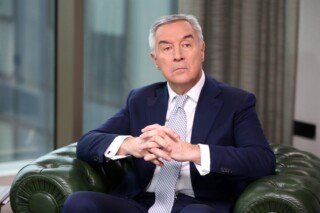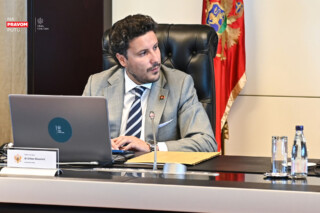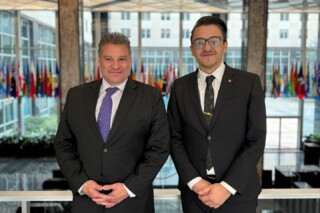In the past 12 months one high-category hotel has been opened every month practically, said President of the Government of Montenegro, Mr Duško Marković, during Prime Minister’s Hour session today. He reiterated that these were golden years of Montenegrin tourism.
Member of the Democratic Party of Socialists (DPS), Mr Miloš Nikolić, asked Mr Marković what he thought about the current summer tourism season. Mr Nikolić also wanted to know what the Government had done so far in the tourism sector.
Mr Marković recalled that in 2006, there were 31 high-category hotels in Montenegro.
“Today, there are 171 high-category hotels. Around 35 of them were built in 2017 and 2018”, said Mr Marković.
Since 2016, more than half a billion EUR has been invested in the development projects on the coast.
“Today, we have world-known hotel groups in Montenegro: Hilton, Aman, Regent, Sheraton, Chedi, Melia, Iberostar, Falkensteiner and the first One&Only hotel in Europe”, pointed out Mr marković.
According to the latest preliminary data for collective and private accommodation collected in the first four months of 2019, we have managed to generate more than one million of overnights for the first time in history.
“For four months, a revenue of € 80,7 million has been generated. That’s by 13% more than in the same period in 2018”, said Mr Marković.
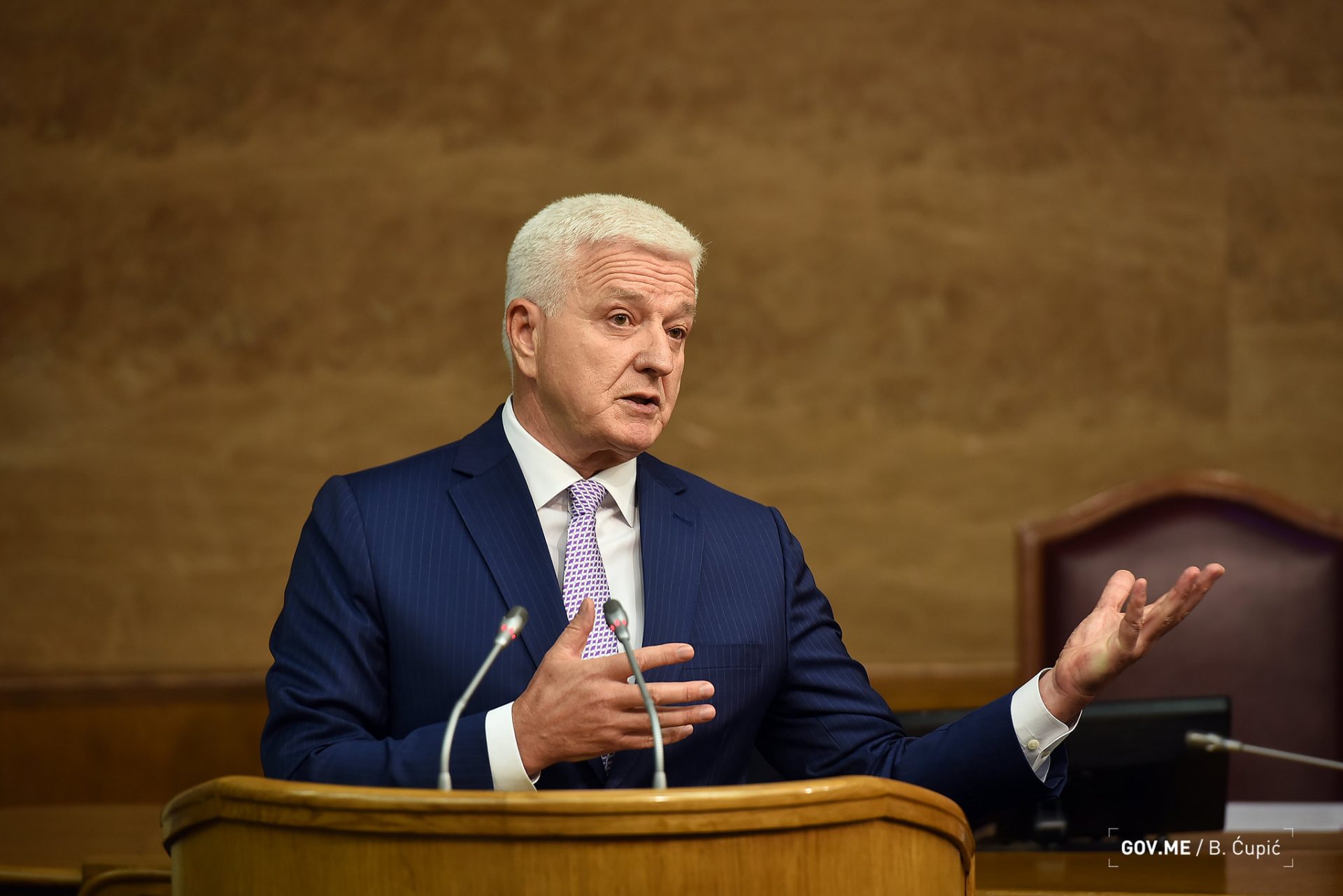
New ski resort Kolašin 1600 was opened in February. Public Works Administration signed a contract for conceptual design, Main project and construction of a six-seat cable car at “Hajla and Štedim” location. Mr Marković added that Agreement on the handover of the location of military and tourist complex Mediteran in Žabljak was signed yesterday.
“Works on the construction of electric infrastructure for the purposes of the electricity supply of the cable cars within Cmiljača and Žarski ski complex. Estimated value of investments amounts to more than €52 million. I’d like to point out that Aman company is going to start construction of the new 5-star hotel in Žabljak in autumn. This new hotel will replace the old “Durmitor” hotel”, said Mr Marković.
There’s another reason for optimism – data provided by the Airports of Montenegro indicate that airports have served more than a million passengers.
“Almost 152.000 tourists have visited National parks from the beginning of the year up to 41st July. That’s a 35% increase. This confirms our commitment to tourism. Thousands of permanent and seasonal jobs indicate that Montenegrin tourism is in full swing”, said Mr Marković.
Member of Socialist Democratic Party (SDP), Mr Raško Konjević, asked the Prime Minister how another €500 million of debt, envisaged by the budget rebalance, would affect total public debt which exceeded € 3,1 billion in 2019.
Mr Marković pointed out that amendments to the Law on Budget didn’t introduce any new debts due to which public debt would rise.
“Measures for the public debt repayment have been planned carefully”, said Mr Marković.
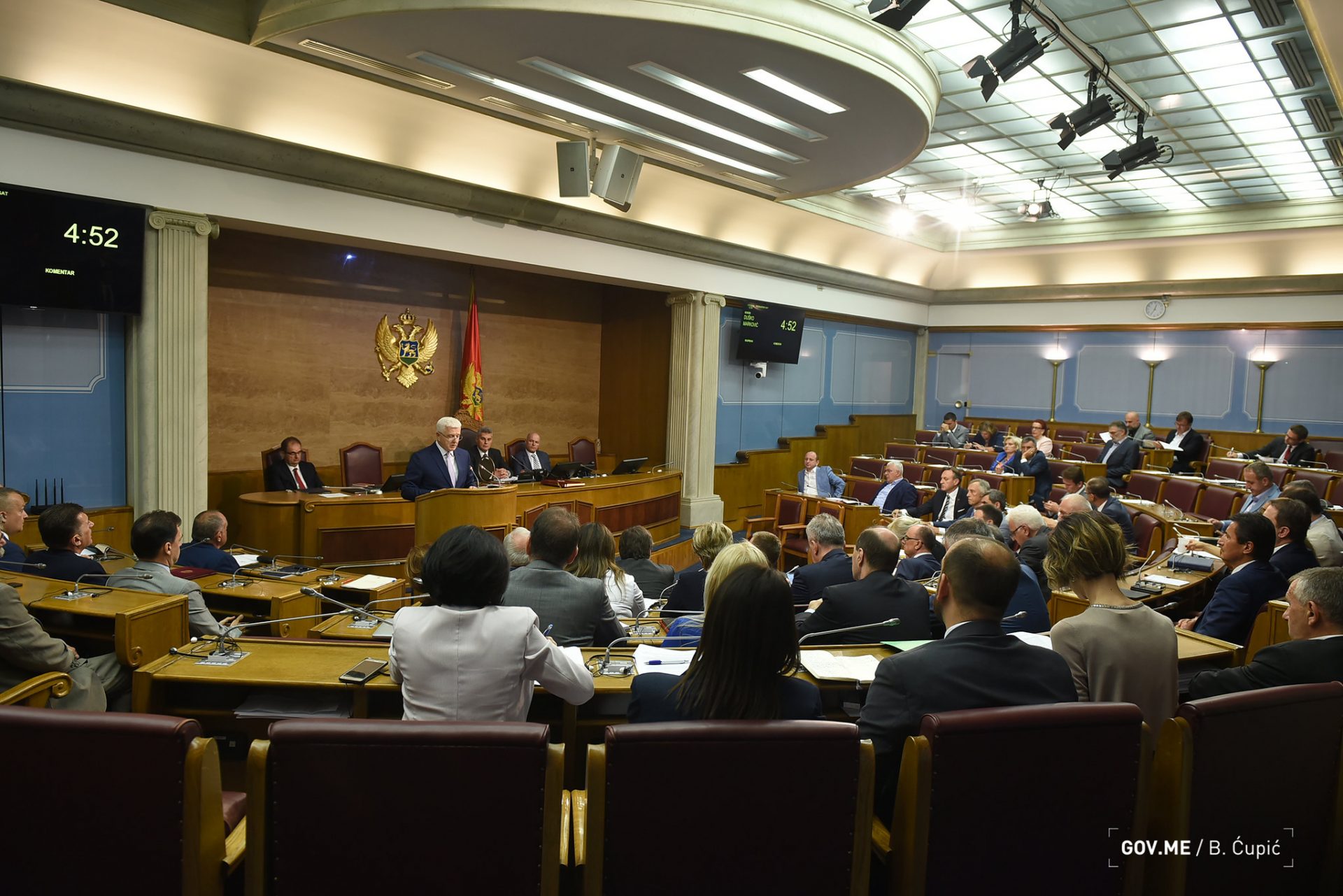
According to him, Montenegro’s position at the international financial market is more stable now, original budget revenues have increased, control and savings in expenditures part is stricter, and all that leads to surplus in the current budget.
“We are focused on strengthening fiscal stability and increasing economy competitiveness. In that context, refinancing the principal of the existing public debt is the main objective of the proposed budget amendment process”, said Mr Marković.
Since the existing debt falls due in 2020 and amounts around € 530 million, the Government and the Ministry of Finance are carefully monitoring trends at the international financial market.
He pointed out that prompt repayment, including bond issue, is a visa for the future arrangements with creditors.
“During this mandate, more than € 1,2 billion of public debt has been repaid. Another €520 million are planned to be repaid next year”, pointed out Mr Marković.
Debt increase has been aimed at financing development through capital projects.
“These projects have strong multiplier effects on economy. Public debt increase of €600 million that you mentioned refers to the withdrawal of funds used for the purposes of priority highway section and other development projects that are financed from the capital budget”, said Mr Marković.
He reiterated that construction of the first highway section, together with other investment projects, had had positive impact on the investments in Montenegro, increased gross investments and contributed to economic growth.
Mr Ervin Ibrahimović, member of Bosnian Party, wanted to know if the Government had planned some concrete measures aimed at improving quality of services and reaching more efficient exercise of citizens’ rights in the towns in northern part of Montenegro.
“I discuss development of the northern part of Montenegro with my counterparts on a daily basis. We attach utmost importance to this issue”, said Mr Marković.
Last year, around €340 million was invested in the development of north.
Mr Neđeljko Rudović asked the Prime Minister when the security code would be taken off the documents referring to apartments given to the officials.
Mr Marković je said that the Government didn’t offer apartments as presents but rather gave them under favorable conditions so that other countries, branches of authority and foreign and domestic companies could do similar.
“It’s quite normal that a country, as an employer, provides a roof over the head of the employees in the public administration”, said Mr Marković.
He pointed out that in the last four years, more than 700 employees had settled their dwelling issue. This year, around 150 employees will be granted loans for the improvement of their dwelling conditions, purchase or construction of an apartment.
Mr Marković emphasized the benefits of the 1000+ project which helped 1,175 families settle their dwelling issue.
Member of Social Democrats, Mr Boris Mugoša, was interested in the situation in the public finances and the execution of this year’s budget.
Mr Marković said that the main objective of economic policy of the Government was to improve quality of life of our citizens. However, measures of fiscal consolidation still have to be implemented regularly so that our finances become sustainable in the long run.
As Mr Marković said, fiscal consolidation measures have produced positive results in the past two years.
“We have created space for increasing investments in infrastructure projects whose implementation accelerates economic growth and has direct impact on the quality of life of every individual. Measures of fiscal adjustment reduced the budget deficit from 5,8% of GDP to the projected 2,97% of GDP”, said Mr Marković.
Positive trends continue.
“Budget revenues were collected in the amount of €820,4 million. Expenditures of the budget amounted to €733,9 million, or 15,3% of GDP. Capital budget totalled €69,0 million”, said Mr Marković.
According to the data provided by the Transport administration, around €20,2 million out of the projected €36,9 million has been spent. Public Works Administration has realized almost €12 million.
“Budget for 2019 is focused on the continuation of the implementation of fiscal consolidation measures and is characterized by faster revenue growth. We spend money on what we most need – investments and development”, said Mr Marković.
More than 200 kilometers of roads has been reconstructed. Healthcare facilities have been reconstructed and the overall healthcare service has been improved. Minimum wage has been increased, employees are paid regularly…
“We have stimulated investments in education and science through different forms of scholarships and other incentives. Every amount of money is for our better future”, said Mr Marković.

